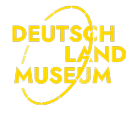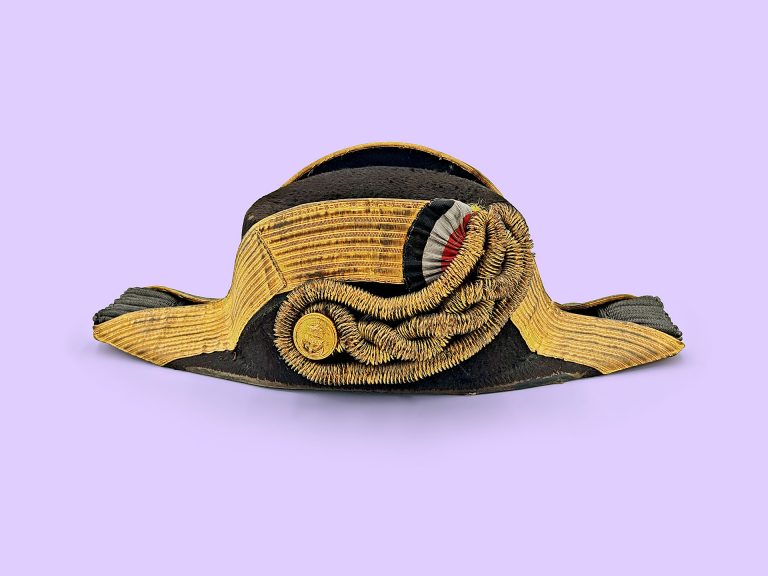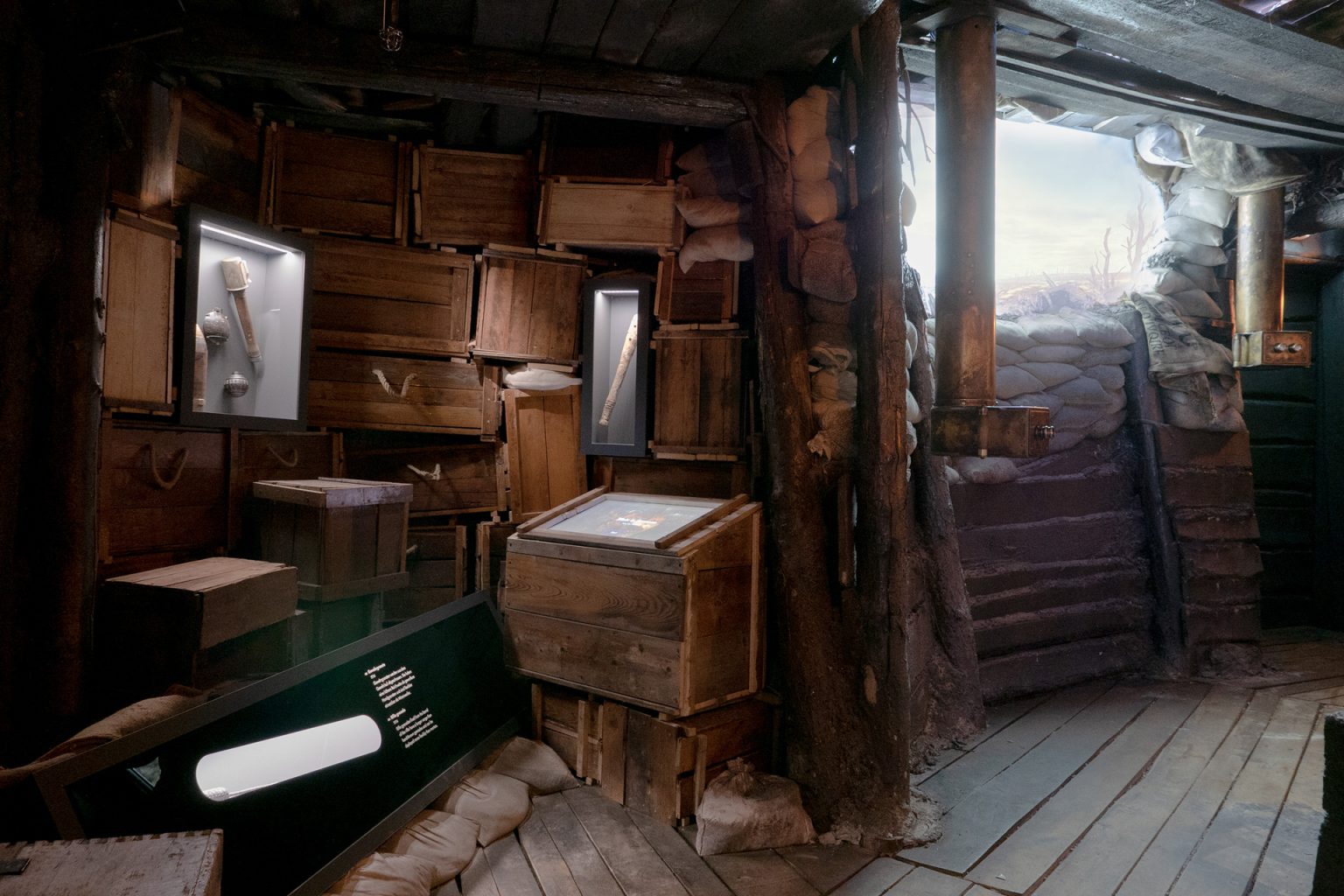
Imperial Germany
1914
Imperial Germany
Monarchy, modernization and militarism
The German Empire formed in 1871 was the first German nation state. It soon developed into the most significant industrialized nation in Europe. Seeking to match this new-found power with international prestige, Emperor William II sought to build a strong navy and embark on the acquisition of a colonial empire. The resulting international tensions culminated in the First World War.
The development of the new German empire
Founded in 1871 through the proclamation of William I as Kaiser (Emperor), the new German state was established as a constitutional monarchy. A democratically-elected parliament called the Reichstag could exercise influence on legislation and the state budget, but key decisions were made by the Emperor.
Rapid economic growth in the last twenty years of the nineteenth century was underpinned by a strong industry and the work of world-leading scientists. Many innovations in science and technology were German, such as aspirin, the automobile and X-rays. As the population of Germany expanded, towns grew larger – and living standards in those towns declined. Seeking to prevent serious social unrest, the government passed laws mandating the creation of health insurance, old age pensions and accident insurance. At the time, this was the most comprehensive and progressive package of social reforms in the world.
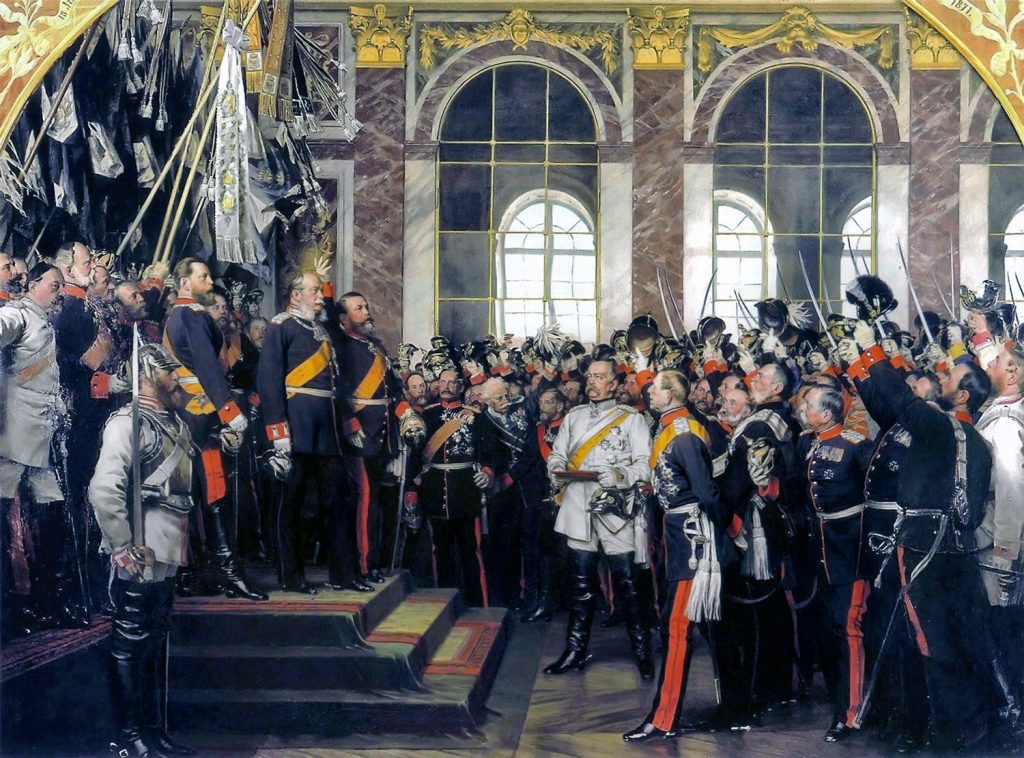
The Empire announced: William I is proclaimed German Emperor in the Hall of Mirrors at Versailles on 18 January 1871 Oil painting by Anton von Werner, third version from 1885 (source: Bismarck-Museum Friedrichsruh via Wikimedia Commons)
Imperialism, the arms race and the First World War
Although Imperial Germany had begun acquiring individual colonies in 1884, the real drive to establish a colonial empire and a strong navy to protect it came with the accession of William II to the German throne in 1888. The resulting tensions with other colonial powers led to the increasing international isolation of Germany and her only other real ally, Austria-Hungary. The assassination of the heir to the Austrian throne in 1914 sparked the First World War and pitted Germany and Austria-Hungary against France, Russia and Great Britain.
Although German armies made a rapid advance through Belgium and France, the nature of modern industrialized warfare meant that they soon became bogged down in the stalemate of the trenches. Even the deployment of innovative new weapons like poison gas and tanks made little difference to the position of the front line. Millions of people lost their lives over the course of four years. Whilst Germany succeeded in routing the Russians on the Eastern Front, the arrival of US troops on the Western Front brought her to the brink of defeat.
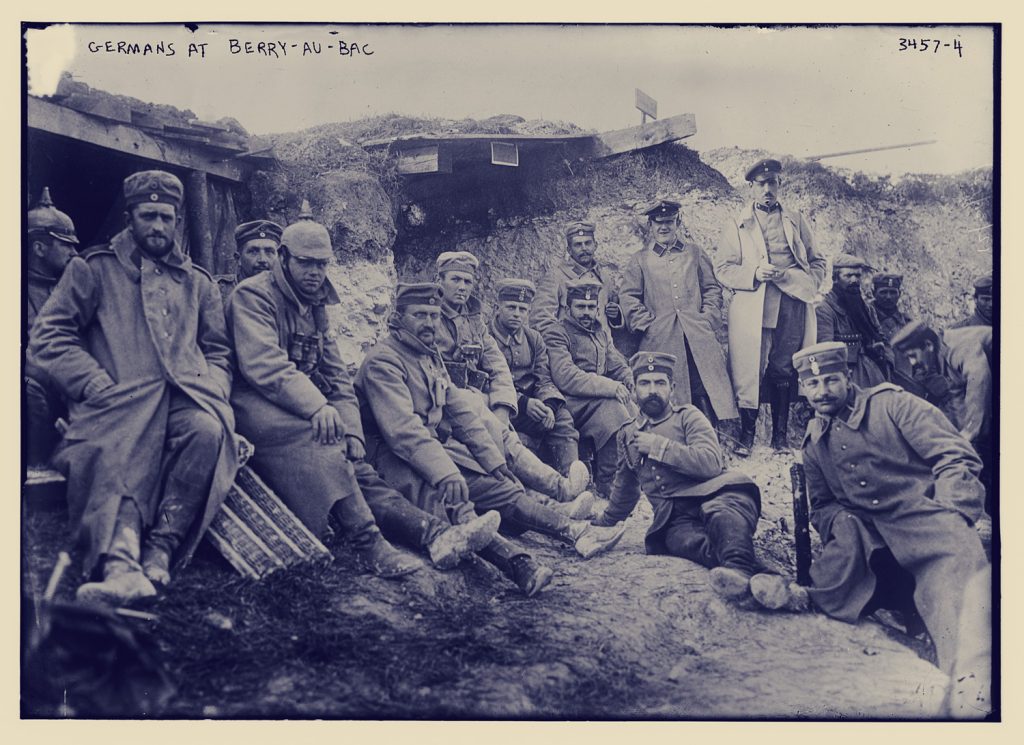
The German advance in the west quickly became bogged down in trench warfare: German soldiers in the trenches, 1914 Photograph, Bains News Service, September 1914 (source: Library of Congress 2014698237)
Despite the impending defeat, the German Imperial Admiralty ordered the High Seas Fleet to put to sea to fight one last great battle. The refusal of the sailors to obey orders led to the November Revolution of 9 November 1918 and the proclamation of a Republic.
The new government established a republic and agreed an armistice with the Western Powers. In June 1919 Germany signed the Treaty of Versailles to end the war.
Share article
1914
The First World War broke out in 1914. The German Empire and Austria-Hungary fought against the Triple Entente of France, Russia and Great Britain.
Epochen im Museum

About the Deutschlandmuseum
An immersive and innovative experience museum about 2000 years of German history
The forest of the Varus Battle
Knowledge is just one click away
Embark on a journey through 2,000 years of German history. One country, 12 epochs. You’re invited to experience the Epoch Weeks at the Deutschlandmuseum. Every week we showcase an epoch that is also on display in the Deutschlandmuseum.
FAQ
The German Empire lasted from 1871 to 1918.
The first German nation state was established in 1871 as a constitutional monarchy under the leadership of Prussia. The Emperor was the head of state and an elected parliament held some influence over legislation and finances.
Victory over France by a coalition of Prussia and other of the German states in 1871 led to an upswing in German national sentiment and gave Otto von Bismarck, Prime Minister of Prussia, the diplomatic leverage to unite all the smaller German states in an Empire under Prussian leadership. The proclamation of the Prussian William I as German Emperor in the Hall of Mirrors at Versailles on 18 January 1871 marked the beginning of the new Empire.
Long before the Empire was established in 1871, the German tribes had been collected together in Holy Roman Empire of the German Nation from 962 AD to 1806. After the dissolution of this Empire in 1806, the German states were assembled in a number of loose confederations, the most important of which was the German Confederation, which existed between 1815 and 1866.
